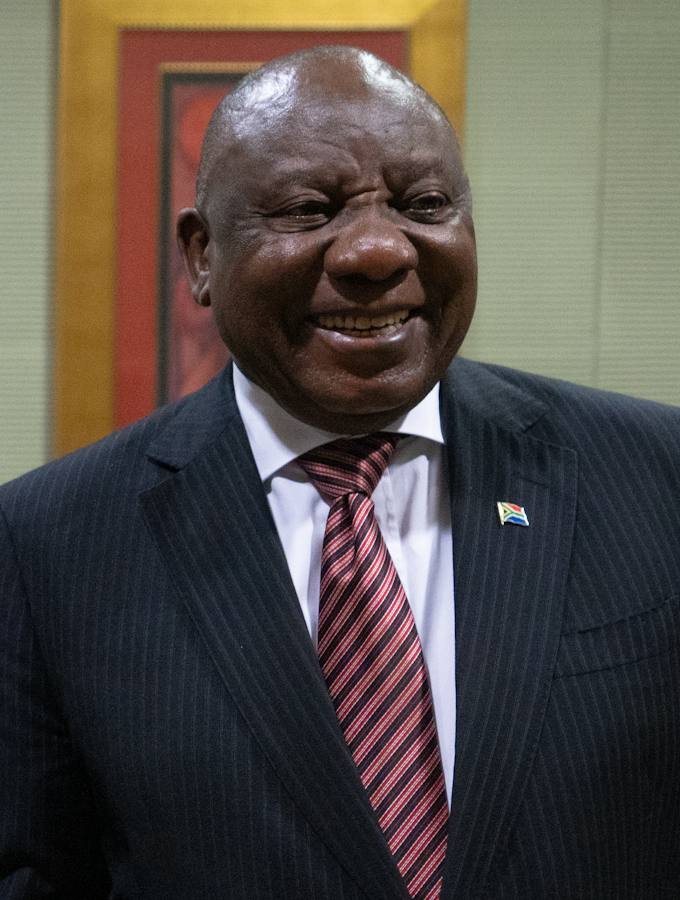Govt embarks on process to ensure transport accessible for all
The President acknowledged that despite enabling legislation, there are still many areas where a lot more work is needed to make the national transport system fully accessible.

- Country:
- South Africa
Government has embarked on a process to ensure that transport is sufficiently accessible to all categories of passengers, including persons with disabilities.
“The goal of a universally accessible national transport system is not only within reach. It is also a vital part of our efforts to build a South Africa that truly belongs to all who live in it,” President Cyril Ramaphosa said on Thursday in Johannesburg.
Delivering the keynote address at the Transport Summit on Universal Accessibility, the President said as part of a reformed approach to urban planning, integrated public transport programmes are being implemented in a number of municipalities.
“The Public Transport Network Grant is one of the mechanisms being used to promote the implementation of universal design and universal access. There are now ten integrated public transport network municipalities receiving the grant, with specific conditions on universal accessibility. Work is underway to roll out a standard for the universal accessibility of all road-based vehicles,” Ramaphosa said.
The President acknowledged that despite enabling legislation, there are still many areas where a lot more work is needed to make the national transport system fully accessible.
As part of ongoing efforts to ensure universal access in the transport system, the President outlined measures that have been put in place to ensure accessibility for persons with disabilities.
“The Department of Transport has gazetted a national policy for parking discs that will enable drivers with disabilities to use a disc obtained in one part of the country everywhere in South Africa. The Passenger Rail Agency of South Africa (PRASA) has developed a universal access policy with norms and standards. It has committed to speed up its work to ensure that trains are accessible and station platforms are level. The Gautrain has had level boarding on its trains since its inception.”
Usability considerations
He emphasised that in all future infrastructure development, the transport system should be designed with usability considerations rather than being retrofitted later.
“Airports Company South Africa, working with airlines, is working to improve accessibility for persons with disabilities across its facilities. These efforts include the introduction of designated parking spaces for persons with disabilities, assisted passenger lounges, and designated private search facilities at security gates.
“There is already a growing awareness within the aviation industry that passenger issues have not been dealt with from a universal access perspective and that more needs to be done,” the President said.
In the maritime sector, industry partners and state-owned entities are looking at improvements to the universal accessibility of inland waterways, river crossings, ports, sailing and yachting clubs.
“No discussion on universal access would be complete without considering the impact of emerging technologies and new business models on transportation, including e-hailing, car sharing and the like. These new systems are rapidly transforming the sector and must be factored into planning, in collaboration with the service provider companies. While we must prepare for new technologies and business models, we also have to fix our established systems, where serious shortcomings persist,” the President said.
“We have to address similar issues in the taxi industry, which transports around 70 percent of the South African population and is the dominant mode of public transport. It is pleasing that the minibus taxi services have, where tasked, been able to demonstrate reasonable accommodation of passengers with disabilities.”
He called for the improvement of road standards and signs so that pedestrian crossing infrastructure is accessible and integrated.
“Walking and cycling should not cost anyone their life. The last 27 years have seen little improvement in the accident rate among cyclists and pedestrians. This must change. It requires a change in the behaviour of drivers and in the culture of enforcement.
“There is much that we can achieve in the short term. Organisations in the transport space can train staff on the needs of persons with disabilities.
“Information materials on routes and timetables can be made more accessible for persons with disabilities. Municipalities can improve road signage and pedestrian access. We are confident that the incoming Transport Economic Regulator and the Public Transport Regulator will play important roles in supporting universal access,” the President said.
Over the past 30 years, South Africa has made considerable progress in both protecting and advancing the rights and dignity of persons with disabilities.
“In 2007, South Africa adopted the UN [United Nations] Convention on the Rights of Persons with Disabilities, which makes provision for the rights of South Africans with disabilities to equality, dignity, safety and freedom of movement.
“Through the Presidential Working Group on Disability, we have sought to ensure that our policies, programmes and practices are inclusive and that persons with disabilities are able to participate fully and freely in all aspects of our national life,” the President said.
(With Inputs from South African Government Press Release)
- READ MORE ON:
- Cyril Ramaphosa










